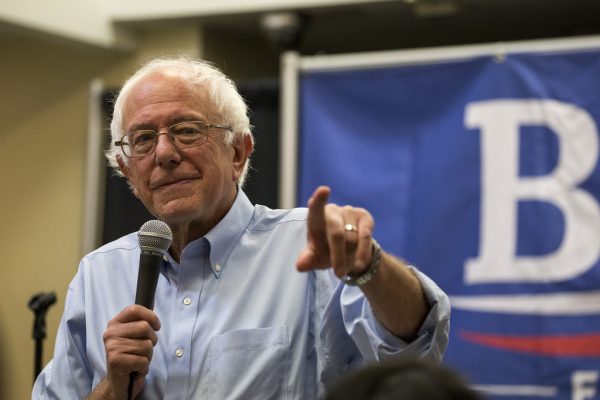The Real Meaning of “Radical”
March 14, 2018
The word “radical” has been rendered meaningless. The word itself indicates the correlation between the essential nature of an object and being able to revise or change it. The Latin history behind the term signifies the fundamental root or base of something. Political culture has changed the essence of the term erentirely. Regardless of whether it is the current administration using the word or one that managed our country decades ago, “radical” has become so potent that it begins to lose its intentional connotation. It becomes incredibly easy to manipulate the true meaning of this word, among many others. English writer George Orwell characterized meaningless words as tactics that politicians may use in a dishonest manner to appeal to an audience member’s emotions. Orwell may have made the statement decades ago, but the same idea persists today in the American people’s treatment of “radical.” Such a false idea had been present through multiple movements and has been misused to the advantage of the majority. When Activist and Writer Angela Davis introduced the notion that “Radical simply means ‘grasping things by the root’,” she began discourse on the mistreatment and manipulation of the word itself. Radicalism is the only path towards liberation.
“Radical” has become synonymous with the extreme, the non-desirable and even the inconceivable. People of authority use this incorrect connotation to gain political support via scare tactics. Particularly, when a candidate for public office uses the word radical, potential voters tend to correlate the word with horrible or frightening things based on the context in which they receive it (which is usually the combination of “radical” and “Islamic terrorism”). While this affiliation is unquestionably absurd, these voters tend not to know any better and fall right into these traps, which only further distorts their understanding of the English language and allows for another meaningless word to be added to their lexicon.
This same mistake is made with the word radical: this is represented within politics as code for extremism and destruction. Many groups of people who are labeled “radical” typically become a public target.
“Radical” is used with such a negative undertone that it creates a terrible image for activists trying to challenge the status quo and further progress society. For instance, “radical” has been synonymous with aspirations all too achievable but condemned as folly by political opponents, such as universal health care. A majority of Americans have been conditioned to believe that this is a radical —unattainable—ideal which, in reality, is not true.
The flawed comprehension of the word that numerous politicians created dating from as far back as the 1700s to present day. When Bernie Sanders campaigned for the Democratic Party’s presidential nomination, the word radical was flung around once again as a means to describe his methods. Sanders simply sought political reform, but many voters began to see him as an extremist because of his association with that term. He had strayed from the status quo with his ideas, and the ensuing labels became detrimental to the success of his candidacy. Bernie Sanders proposed legislation that would grant universal health care, aid in breaking income inequality, as well as pave way for citizenship opportunities for immigrants to the United States. All of Sander’s ideals were centered around providing communities with essential civil rights that they should already have; it would allow for the progression of the U.S towards a secure space for all and not just the rich elite. This advancement was challenged by the media and Bernie’s competitors, as they began to disregard his policies and consider him too radical for this country. This is increasingly problematic, as it begins to look at basic human decency as something that is too “extreme” for the people. The right to live via healthcare is not a privilege, but politicians seem to equate the liberty to one that is only reserved for the upper class and thus persuade potential voters of this same concept. Since Bernie went against such an atrocious standard, he was deemed unfit for presidency.
The misuse of the word “radical” only further acts as a scheme to prevent advancement within society. This begs the question: Why are we equating the word radical to expected human decency? Since when are human rights radical? As human beings, we must understand that change is needed in this country, and categorically denying the progress championed by radical viewpoints” only halts any potential change. Radical should have a positive undertone that encourages growth within a country and its people; in order to see such development, it is vital that social problems are “grasped at the roots.” Simply put, in order to see a change within a system, one must understand the conflict’s fixed origins and aim to dismantle the embedded elements of said problem. This is where true flourish commences.










